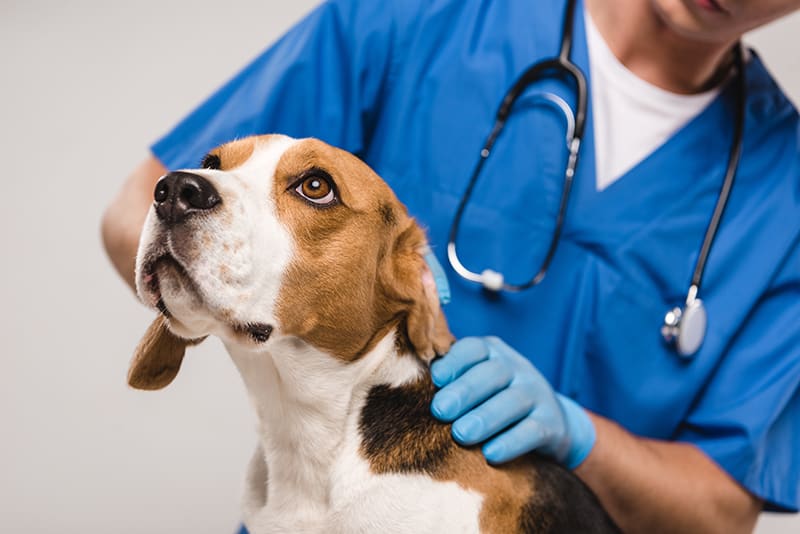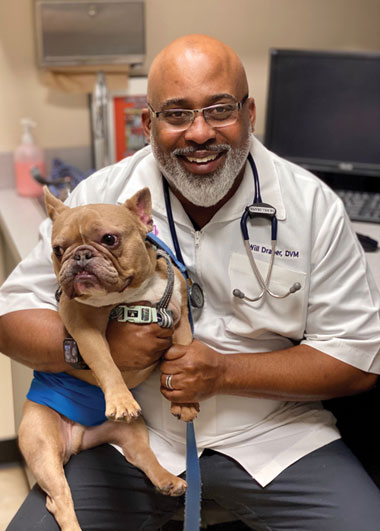The Value of Early Discovery: Insights From a Veterinary Oncologist
Early detection of cancer in pets is a vital subject for pet owners and veterinary experts alike. Vet oncologists emphasize the importance of recognizing refined signs that may show serious health and wellness problems. Typical signs and symptoms typically go undetected until they rise. Comprehending these early indication and advancements in diagnostic techniques can make a significant distinction. What steps can animal owners require to boost their pets' chances of very early medical diagnosis and far better treatment outcomes?
Comprehending Cancer in Animals: Usual Kinds and Signs And Symptoms
While numerous pet dog proprietors may not recognize it, cancer is a significant wellness issue affecting animals, a lot like it performs in human beings. Common kinds of cancer cells in family pets consist of lymphoma, pole cell growths, osteosarcoma, and mammary lumps. These malignancies can show up in numerous means, depending upon their place and kind. Symptoms often consist of inexplicable weight management, relentless vomiting, changes in appetite, or uncommon swellings and bumps. Animals may likewise show lethargy, difficulty breathing, or hesitation to workout, which can indicate underlying health issues. Early indications can be subtle, making it vital for animal owners to be observant of their pet dogs' behaviors and physical problem. Understanding these typical types and connected symptoms can encourage proprietors to seek veterinary care quickly, possibly causing earlier diagnosis and therapy options. Acknowledging the signs of cancer cells in animals is an important action in the direction of enhancing their health and quality of life.
The Function of Veterinary Oncologists in Very Early Discovery
Veterinary oncologists play an essential function in the early discovery of cancer cells in animals, as their specialized training equips them with the skills essential to determine refined indicators that may be neglected by family doctors. They utilize a combination of clinical knowledge and progressed diagnostic tools to evaluate people extensively - Board Certified Veterinary Oncologist. By identifying early signs and symptoms and threat elements, oncologists can assist pet proprietors toward timely treatments, enhancing the opportunities of successful therapy
Veterinary oncologists frequently team up with basic practitioners to create screening methods tailored to certain types or age groups, enhancing the efficiency of very early detection efforts. They inform family pet proprietors on the importance of regular examinations and understanding of modifications in habits or physical condition. Via these aggressive steps, veterinary oncologists significantly add to improving results for animals identified with cancer cells, highlighting the crucial nature of their function in vet healthcare.
Developments in Diagnostic Techniques for Family Pet Cancer Cells
Innovations in diagnostic strategies have markedly boosted the capability to discover cancer cells in pet dogs at earlier phases. Techniques such as innovative imaging, consisting of MRI and CT scans, supply comprehensive interior sights, permitting veterinarians to recognize growths that might not be apparent. In addition, the development of minimally invasive procedures, such as great needle aspirates and biopsies, makes it Veterinary Cancer Specialist possible for accurate sampling of cells for histopathological assessment with lowered stress for the pet.
Arising molecular diagnostics, including hereditary screening and biomarker identification, are changing the landscape of veterinary oncology. These methods can recognize particular cancer cells kinds and anticipate reactions to treatment, helping with personalized treatment plans. In addition, developments in lab strategies, such as liquid biopsies, are starting to offer non-invasive alternatives for checking growth progression and treatment efficiency. Jointly, these advancements represent a significant jump ahead in veterinary medicine, highlighting the important function of early discovery in improving end results for family pets diagnosed with cancer.
How Pet Dog Owners Can Recognize Indication
Exactly how can family pet proprietors end up being vigilant in identifying prospective warning indicators of cancer? Understanding of physical and behavioral changes in pet dogs is important. Typical indicators consist of uncommon lethargy, loss of cravings, or unexpected weight adjustments. Family pet proprietors ought to likewise take note of persistent throwing up or diarrhea, which may indicate underlying problems.
Modifications in the skin, such as lumps, bumps, or sores that do not heal, warrant immediate veterinary interest. Furthermore, owners must keep in mind modifications in drinking behaviors, enhanced urination, or difficulty in breathing. Unusual hopping or pain may also be signs of even more major problems.
Routine vet check-ups can help determine these indication early. By keeping a close monitoring of their animals' health and habits, owners can play an essential duty in early detection, potentially bring about far better outcomes must cancer be detected. Recognizing these indicators may greatly influence a pet's lifestyle.
The Influence of Early Discovery on Therapy Results
Early discovery of cancer in pets plays a crucial role in figuring out treatment outcomes, as it frequently permits for a larger variety of healing options. When cancer cells is detected in its beginning, vets can apply less invasive therapies, boosting the likelihood of effective treatment. Early-stage cancers may also react far better to chemotherapy or radiation, leading to enhanced survival rates and general quality of life for the family pet.
Additionally, timely diagnosis promotes a much more customized therapy strategy, straightening with the certain needs of the pet. This can include tailored medication programs or surgical treatments that are much less aggressive. Alternatively, late-stage detection usually results in limited choices, extra hostile treatments, and poorer diagnoses. The significance of very early detection can not be overstated; it basically modifies the trajectory of therapy, making it important for pet owners to continue to be watchful for any type of indications of disease in their cherished friends.
Frequently Asked Concerns

How Can Diet Plan Influence Cancer Cells Danger in Family Pets?
Diet significantly influences cancer danger helpful site in family pets, as certain nutrients and food types can either promote or hinder lump growth. A balanced, nutrient-rich diet plan may assist reduce the possibility of establishing cancer cells in pets.
Are Certain Types More Prone to Cancer cells?
Particular pet dog types, such as Golden Retrievers and Martials artists, show greater cancer susceptibility because of genetic predispositions. Some feline types also show raised cancer dangers, highlighting the significance of breed-specific health and wellness understanding amongst animal proprietors.

What Are the Costs Linked With Early Cancer Cells Detection?
The costs connected with early cancer discovery can differ considerably, including diagnostic tests, examinations, and possible treatments - Pet Cancer Surgery. Buying these services usually brings about far better health and wellness results, eventually saving on more extensive future clinical expenditures
Can Vaccinations Stop Cancer in Pet Dogs?


Vaccines may minimize the risk of certain cancers in pets, especially those linked to viral infections. Their efficiency differs, and animal proprietors ought to get in touch with vets for tailored guidance pertaining to inoculation and cancer cells avoidance techniques.
Just How Frequently Should Animals Be Evaluated for Cancer cells?
Animals should usually be screened for cancer annually, specifically as they age or if they exhibit risk variables. Regular vet a knockout post exams can aid recognize possible concerns early, improving treatment outcomes and total health and wellness management.
Early discovery of cancer cells in pets is a vital subject for family pet owners and vet experts alike. Early indications can be subtle, making it important for family pet proprietors to be watchful of their family pets' behaviors and physical problem. Veterinary oncologists play an essential function in the very early detection of cancer in pets, as their specialized training furnishes them with the skills necessary to determine subtle indications that may be overlooked by general practitioners. By maintaining a close observation of their family pets' health and behavior, owners can play a crucial role in very early detection, possibly leading to far better outcomes ought to cancer cells be identified. Early discovery of cancer in pet dogs plays a necessary function in establishing therapy results, as it frequently permits for a bigger variety of healing alternatives.